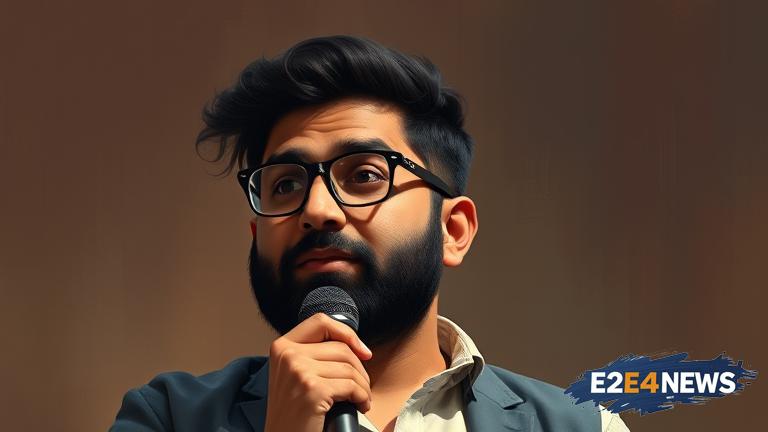In a recent turn of events, comedian Kunal Kamra has found himself at the center of a controversy surrounding a breach of privilege motion filed against him. The motion, which was filed by a Shiv Sena MP, alleged that Kamra’s tweets had insulted the Chair and the House, thereby constituting a breach of privilege. However, Kamra has responded to the motion with a scathing criticism, calling it ‘mala fide’ and ‘motivated’. He argued that the motion was an attempt to stifle his freedom of speech and silence him. Kamra also pointed out that the tweets in question were not intended to insult the Chair or the House, but rather to critique the government’s handling of certain issues. The comedian further stated that he had always been a vocal critic of the government and had never hesitated to speak truth to power. He also expressed his disappointment at the fact that the motion had been filed by a member of the Shiv Sena party, which had once been a vocal advocate for freedom of speech. Kamra’s response has sparked a heated debate on social media, with many coming out in support of the comedian and criticizing the government for trying to stifle dissent. The incident has also raised questions about the limits of freedom of speech in India and the role of the government in regulating online content. The breach of privilege motion against Kamra is not an isolated incident, but rather part of a larger trend of the government cracking down on dissenting voices. In recent years, there have been numerous instances of comedians, journalists, and activists being targeted by the government for their criticism of its policies. The incident has also highlighted the importance of protecting freedom of speech and the need for the government to respect the rights of citizens to express themselves freely. Kamra’s response to the motion has been widely praised for its courage and conviction, and has inspired many to speak out against the government’s attempts to stifle dissent. The comedian’s tweets had sparked a controversy, with many accusing him of insulting the Chair and the House. However, Kamra maintained that his tweets were not intended to insult anyone, but rather to critique the government’s handling of certain issues. The breach of privilege motion against Kamra is a serious matter, and the comedian could face serious consequences if found guilty. The motion has been referred to the privileges committee, which will investigate the matter and submit its report to the House. The committee’s report will be crucial in determining the outcome of the case, and could have significant implications for freedom of speech in India. The incident has also sparked a debate about the role of social media in modern society, and the need for the government to regulate online content. While some argue that social media has given people a platform to express themselves freely, others argue that it has also created new challenges for the government in regulating online content. The government has been facing criticism for its handling of online content, with many accusing it of trying to stifle dissenting voices. The incident has also highlighted the importance of protecting freedom of speech, and the need for the government to respect the rights of citizens to express themselves freely. The breach of privilege motion against Kamra is a reminder that the government is always watching, and that citizens must be careful about what they say online. However, it is also a reminder that the government must respect the rights of citizens to express themselves freely, and that freedom of speech is a fundamental right that must be protected at all costs. The incident has sparked a heated debate on social media, with many coming out in support of Kamra and criticizing the government for trying to stifle dissent. The comedian’s response to the motion has been widely praised for its courage and conviction, and has inspired many to speak out against the government’s attempts to stifle dissent. The incident is a reminder that freedom of speech is a fundamental right that must be protected at all costs, and that the government must respect the rights of citizens to express themselves freely.
